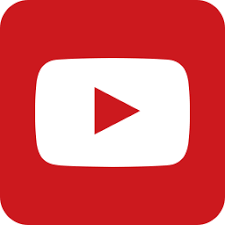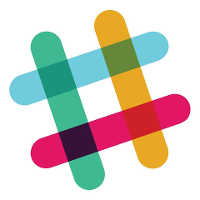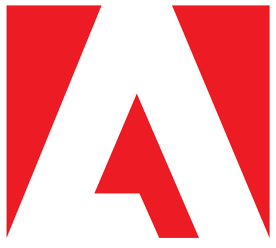How I Make $60K/Year As A Self-Taught Freelance Audio Producer
Hello! Who are you and what business did you start?
My name is Kate Brunotts and I’m a full-time audio producer, running my own business as a beatmaker and audio engineer. I’ve crafted my career path and opted to become my boss so I can have the flexibility for my artist project since I regularly play out with my band across NYC.
I’m fortunate enough to make just over 60K through my freelance lifestyle– while it might not be a staggering amount relative to my location, I’m a firm believer that my time and freedom to create whenever I want as an artist is a major part of my paycheck.

What's your backstory and how did you come up with the idea?
I’m originally from Virginia, just outside of Washington, DC where I grew up around a lot of people working in government or tech industries. I always knew music was my greatest passion, so as early as I can remember I dreamed of moving to a city like New York.
When it came time to graduate high school, I knew art school was too expensive for what I thought it would be worth– not many people go into art for money anyhow (if they did, they would be quite misguided), so it didn’t seem like a worthy investment at the time. Instead, I saved up working as a cashier at Wegmans after school, building up a sum of about 10K to support my move to the Big Apple.
I moved to NYC the week I graduated from high school, without a job, just determined to find more like-minded musicians. I got a job at a coffee shop, then Guitar Center, and began to freelance as a music producer and audio writer in the evenings. Eventually, I was able to lapse my day job income with my freelance income, which is when I knew my business was successful enough to support my lifestyle.
Simultaneously, I continued to make music and grow my social circle which in turn helped me find more clients. When I first moved to the city, I was living on minimum wage, so once the freelance income started to become more consistent, it was clear this was the right path for me.
Take us through the process of building the first version of your product.
All of my products are services, so I was fortunate enough to already have a working laptop, and basic MIDI keyboard to produce music. I learned how to produce music and edit audio entirely through YouTube, giving myself exercises to improve my craft.
I decided I wanted to start producing music for a fee, and hopped on Upwork and found the smallest pool I could find– meaning a client who paid peanuts for the work. Essentially, I applied to everything I could, regardless of the paycheck until someone said yes.
Once I got my good first review, I applied to more jobs with slightly better working conditions until I could build up my portfolio to my pay grade. Sometimes, I would add in a video introducing myself to help create more of an impression on prospective clients, which can help communicate I’m willing to go the extra mile in my work.
My thought process was I’d do a great job, get a good review for my portfolio, and build up from there. I also sought out feedback from friends surrounding my music and audio production skillset and did my best to improve based on their suggestions.
I position myself as an audio authority by creating educational videos in my free time to help others interested in audio or production get a headstart, which can also lead to paid consultations.
Over time, I continued to take on jobs and raise my rates as my skillset and experience increased.
Describe the process of launching the business.
There wasn’t a dramatic launch per se, just a lot of me reaching out cold to potential clients on Upwork. I got a lot of no’s before I got any yes-s, but whenever I did get a job, I did my best to overdeliver. I started going for small-budget clients until I had a strong portfolio to back me up.
Over time, I surely but slowly increased my rates about my skillset and availability. I also began to see what sort of audio production markets were the most consistent– I needed my business to be steady so I could focus on my passion project in the off-hours.
Since launch, what has worked to attract and retain customers?
I’m lucky in that most of my business is built off of referrals– my clients refer me to other clients in need. My profile on Upwork also has enough reviews now that it’s a lot easier for prospective clients on the platform to trust me initially than it was when I first started:

My passion project as an artist also serves as an advertisement for my audio production business. I position myself as an audio authority by creating educational videos on YouTube in my free time to help others interested in audio or production get a headstart, which can also lead to paid consultations.
My broader music-essay-based content on YouTube tends to do better than music production-focused focused, but I think of videos as planting seeds. You’ll never know when something will content with a larger audience. I tend to average a couple of thousand views with videos, but it varies drastically depending on what resonates with the algorithm.
I keep in touch with my audience and client base via social media and my newsletter– I’m a big believer in owning your audience in the age of algorithms.
How are you doing today and what does the future look like?
I’m doing great! I’ve been fortunate enough to amass a following of about 15K followers across my several social media platforms, building up a consistent listener base of around 20K monthly listeners month to month:
In terms of my social media strategy, it’s not anything overwhelming analytic– I just make a habit of it. Going too far into the numbers stresses me out, and I feel like my audience can sense that.
I try to make content I’m genuinely interested in/passionate about and balance that with keeping up a consistent cadence. I’m also pretty big on replying to people when I can. It boils down to just showing up.

Because of my work on social media platforms, I’ve gotten to collaborate with brands like CNBC, Splice, and Manifest Audio to create content surrounding my audio niche.
My business continues to be profitable and amass more clients as my network grows. I’ve gone from earning about 40K a year to 60K a year within a matter of two years, and I’m hoping I can provide more value to eventually increase that margin.
As of 2023, I would say 60% of my clients/income come from Upwork, with 30% of my clients coming from direct referrals or relationships and 10% coming from my artist project, and occasional sponsored posts or one-off opportunities. I don’t earn money from my YouTube channel currently.

I’ve started to take social media more seriously, and I believe that effort is paying off and opening doors for my art that might not otherwise be open. In the future, I hope to retain ownership of my music, provide high-quality audio and educational content to my clients, and most importantly, continue to be happy and live in a way that’s authentic to me.
Through starting the business, have you learned anything particularly helpful or advantageous?
Freelancing is often feast or famine. Creating an emergency fund with 3+ months of expenses is best practice, and will calm your nerves during those dry periods.
There is no harm in reaching out to someone– the worst thing they can do is not respond or politely reject your request. Being kind and having patience goes a long way.
You are ultimately what you do every day, not what you say you want to do every day. Find ways to bring your passion into your lifestyle consistently, even if it’s just for 20 minutes.
What platform/tools do you use for your business?
For sourcing new clients, I use Upwork and LinkedIn. I often use Slack and Asana to organize my work schedule, but most of my administrative work is done out of Google Docs.
Social media is a must for small artists (and business owners I would argue), though I tend to focus on Instagram, TikTok, and YouTube. I’ve been able to connect with some high-profile people like Grimes which enhance my visibility as a business owner and artist:
For music production, I utilize Ableton Live and Adobe Creative Suite.
What have been the most influential books, podcasts, or other resources?
A lot of my job comes back to having great people skills. I love “Where Should We Begin” by Esther Perel and “On Purpose” by Jay Shetty podcast-wise. “Steal Like an Artist” by Austin Kleon is a favorite read.
Advice for other entrepreneurs who want to get started or are just starting out?
Just get started! I’ve talked to so many people who let life pass them by because they’re waiting for the “perfect” piece or moment to represent themselves. Everyone fails. No one knows what they’re doing. Be a perpetual learner and be brave enough to fail publicly– that’s where you grow.
Where can we go to learn more?
If you have any questions or comments, drop a comment below!

Download the report and join our email newsletter packed with business ideas and money-making opportunities, backed by real-life case studies.

Download the report and join our email newsletter packed with business ideas and money-making opportunities, backed by real-life case studies.

Download the report and join our email newsletter packed with business ideas and money-making opportunities, backed by real-life case studies.

Download the report and join our email newsletter packed with business ideas and money-making opportunities, backed by real-life case studies.

Download the report and join our email newsletter packed with business ideas and money-making opportunities, backed by real-life case studies.

Download the report and join our email newsletter packed with business ideas and money-making opportunities, backed by real-life case studies.

Download the report and join our email newsletter packed with business ideas and money-making opportunities, backed by real-life case studies.

Download the report and join our email newsletter packed with business ideas and money-making opportunities, backed by real-life case studies.










